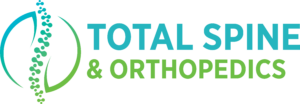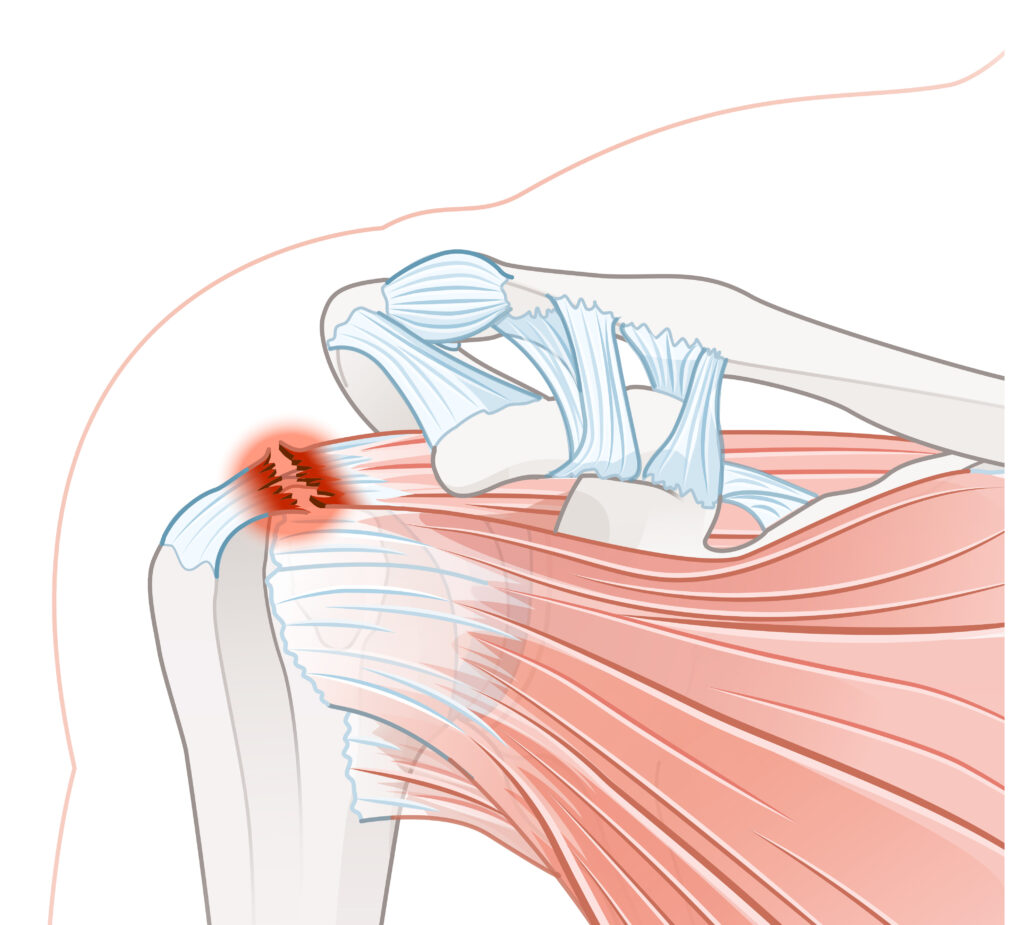
A rotator cuff tear is a very common condition in the shoulder that can cause recurring pain, weakness, and a variety of other symptoms. When the tissues connecting muscles in the shoulder to bone, commonly known as tendons, become damaged or "torn", it can create a sensation of pain or weakness. The severity and symptoms of the tear can vary depending on what caused the tear to form and other factors.

Some of the most common symptoms include:
Depending on the severity of the tear as well as the cause, pain may be immediate or gradually increase over time.
There are many potential causes and factors that can cause a rotator cuff tear to form and it's important to have your physician conduct a physical exam to determine which is applicable to your situation. One common way a tear can develop is over time due to overuse of the shoulder, especially with repetitive motions and activities that stress the shoulder. Rotator cuff tears can also be caused by an accident or injury which may cause severe and immediate pain.
Several factors such as age, occupation, family history, and certain sports can increase the risk of developing a rotator cuff tear.
A physical exam by a licensed physician is the most important part of diagnosing a tear. This exam will allow a physician to determine if and to what extent the tendons are damaged and help determine what steps need to be taken to correct the problem. A physician may also choose to order diagnostic imaging such as an X-Ray, Ultrasound, or MRI as part of a treatment plan.
For mild tears rest and the application of an ice pack can help to alleviate symptoms. For more severe tears, physical therapy and/or surgery may be required. Steroid injections may provide temporary symptom relief but will not be able to heal the shoulder on their own.
If you are concerned that you may have a rotator cuff tear that is severe or not healing on its own, an examination by a physician can help determine what treatments may be required. Our physicians are experts at diagnosing and treating all kinds of shoulder issues. Our team specializes in minimally invasive treatments that provide long-lasting and effective pain relief. If you'd like to schedule an appointment, please fill out the appointment request form on our page, we also offer a Free MRI Review.

Melbourne: 709 S Harbor City Blvd, Ste 110, Melbourne, FL 32901
Orlando: 9145 Narcoossee Rd, Ste A200, Orlando FL 32827
Titusville: 494 N Washington Ave, Titusville, FL 32796
Our Hours: Monday - Friday 8:00 AM to 5:00 PM
Copyright © Total Spine and Orthopedics - Icons From FlatIcon